How me and my team made 15+ apps and not made a single dollar in 2023
First year of indiehacking.
This year was the official beginning of my adult life. I graduated from university and started a full-time job.
I’ve also really dug into indiehacking/bootstrapping and started 15 projects (and it will be at least 17 before the year ends).
This year I mainly worked with Shannon, my cofounder from Fistbump, Zane (until he got sick of us lol), and several other mates.
I think I’ve learned a lot but I consciously repeated mistakes.
Upto
Discord Statuses + Your Location + Facebook Poke
This was the end of uni, I often messaged (and got messaged) requests of status and location to (and from my) friends. I thought, what if we make a social app that’s super basic and all it does is show you where your friends are? To differentiate from snap maps and others we wanted something with more privacy where you select the location. However, never finished the codebase or launched it. This is because I slowly started to realize that B2C (especially social networks) are way too hard to make into an actual business and the story with Fistbump would repeat itself. However, this decision not to launch it almost launched a curse on our team. From that point, we permitted ourselves to abandon projects even before launching.
Lessons
Don’t do social networks if your goal is 10k MRR ASAP.
If you build something to 90% competition ship it or you will think it’s okay to abandon projects
Insight Bites
Youtube Summarizer Extension
Right after Upto, we started ideating and conveniently the biggest revolution in the recent history of tech was released → GPT. We instantly began ideating. The first problem we chose to use AI for is to summarize YouTube videos. Comical. Nevertheless, I am convinced we have had the best UX because you could right-click on a video to get a slideshow of insights instead of how everyone else did it. We dropped it because there was too much competition and unit economics didn’t work out (and it was a B2C).
PodPigeon
Podcast → Tweet Threads
Then we thought, to make unit economics work we need to make this worthwhile for podcasters. This is when I got into Twitter and started seeing people summarize podcasts. Then I thought, what if we make something that converts a podcast into tweets? This was probably one of the most important projects because it connected me with Jason and Jonaed, both of whom I regularly stay in contact with and are my go-to experts on ideas related to content creation. Jonaed was even willing to buy Podpigeon and was using it on his own time. However, the unit economics still didn’t work out (and we got excited about other things).
Furthermore, we got scared of the competition because I found 1 - 2 other people who did similar things poorly. This was probably the biggest mistake we’ve made. Very similar projects made 10k MRR and more, launching later than we did. We didn’t have a coherent product vision, we didn’t understand the customer well enough, and we had a bad outlook on competition and a myriad of other things.
Lessons
I already made another post about the importance of
outlook on the competition. Do not quit just because there are competitors or just because you can’t be 10x better. Indiehackers and Bootstrappers (or even startups) need to differentiate in the market, which can be via product (UX/UI), distribution, or both.
Asking Ace
Intro.co + Crowdsharing
As I got into Twitter, I wanted to chat with some people I saw there. However, they were really expensive. I thought, what if we made some kind of crowdfunding service for other entrepreneurs to get a private lecture from their idols? It seemed to make a lot of sense on paper. It was solving a problem (validated via the fact that Intro.co is a thing and making things cheaper and accessible is a solid ground to stand on), we understood the market (or so we thought), and it could monetize relatively quickly. However, after 1-2 posts on Reddit and Indiehackers, we quickly learned three things. Firstly, no one cares. Secondly, even if they do, they think they can get the same information for free online. Thirdly, the reasons before are bad because for the first point → we barely talked to people, and for the second people → we barely talked to the wrong people. However, at least we didn’t code anything this time and tried to validate via a landing page.
Lessons
Don’t give up after 1 Redditor says “I don’t need this”
Don’t be scared to choose successful people as your audience.
Clarito
Journaling with AI analyzer
Clarito is a classic problem all amateur entrepreneurs have. It’s where you lie to yourself that you have a real problem and therefore is validated but when your team asks you how much you would pay you say
I guess I would pay, maybe, like 5 bucks a month…?
Turns out, you’d have to pay me to use our own product lol.
We sent it off to a few friends and posted on some forums, but never really got anything tangible and decided to move away.
Honestly, a lot of it is us in our own heads. We say the market is too saturated, it’ll be hard to monetize, it’s B2C, etc.
Lessons
You use the Mom Test on other people. You have to do it yourself as well. However, recognizing that the Mom Test requires a lot of creativity in its investigation because knowing what questions to ask can determine the outcome of the validation. I asked myself “Do I journal” but I didn’t ask myself “How often do I want GPT to chyme in on my reflections”. Which was practically never.
That being said I think with the right audience and distribution, this product can work. I just don’t know (let alone care) about the audience that much (and I thought I was one of them)/
Horns & Claw
Scrapes financial news texts you whether you should buy/sell the stock (news sentiment analysis)
This one we didn’t even bother launching. Probably something internal in the team and also seemed too good to be true (because if this works, doesn’t that just make us ultra-rich fast?). I saw a similar tool making 10k MRR so I guess I was wrong.
Lessons:
This one was pretty much just us getting into our heads. I declared that without an audience it would be impossible to ship this product and we needed to start a YouTube channel. Lol, and we did. And we couldn’t even film for 1 minute. I made bold statements like “We will commit to this for at least 1 year no matter what”.
Learnery
Make courses about any subject
This is probably the most “successful” project we’ve made. It grew from a couple of dozen to a couple of hundred users. It has 11 buy events for $9.99 LTD (we couldn’t be bothered connecting Stripe because we thought no one would buy it anyway).
However what got us discouraged from seriously pursuing it more is, that this has very low defensibility, “Why wouldn’t someone just use chatGPT?” and it’s B2C so it’s hard to monetize.
I used it myself for a month or so but then stopped. I don’t think it’s the app, I think the act of learning a concept from scratch isn’t something you do constantly in the way Learnery delivers it (ie course). I saw a bunch of similar apps that look like Ass make like 10k MRR.
Lessons
Don’t do B2C, or if you do, do it properly
Don’t just Mixpanel the buy button, connect your Stripe otherwise, it doesn’t feel real and you don’t get momentum. I doubt anyone (even me) will make this mistake again.
I live in my GPT bubble where I make assumptions that everyone uses GPT the same way and as much as I do. In reality, the argument that this has low defensibility against GPT is invalid. Platforms that deliver a differentiated UX from ChatGPT to audiences who are not tightly integrated into the habit of using ChatGPT (which is like - everyone except for SOME tech evangelists).
CuriosityFM
Make podcasts about any subject
This was our attempt at making Learnery more unique and more differentiated from chatGPT. We never really launched it. The unit economics didn’t work out and it was actually pretty boring to listen to, I don’t think I even fully listened to one 15-minute episode.
I think this wasn’t that bad, it taught us more about ElevenLabs and voice AI. It took us maybe only 2-3 days to build so I think building to learn a new groundbreaking technology is fine.
SleepyTale
Make children’s bedtime stories
My 8-year-old sister gave me that idea. She was too scared of making tea and I was curious about how she’d react if she heard a bedtime story about that exact scenario with the moral that I wanted her to absorb (which is that you shouldn’t be scared to try new things ie stop asking me to make your tea and do it yourself, it’s not that hard. You could say I went full Goebbels on her).
Zane messaged a bunch of parents on Facebook but no one really cared. We showed this to one Lady at the place we worked from at Uni and she was impressed and wanted to show it to her kids but we already turned off our ElevenLabs subscription.
Lessons
However, the truth behind this is beyond just “you need to be able to distribute”. It’s that you have to care about the audience. I don’t particularly want to build products for kids and parents. I am far away from that audience because I am neither a kid anymore nor going to be a parent anytime soon, and my sister still asked me to make her tea so the story didn’t work. I think it’s important to ask yourself whether you care about the audience. The way you answer that even when you are in full bias mode is, do you engage with them? Are you interested in what’s happening in their communities? Are you friends with them? Etc.
User Survey Analyzer
Big User Survey → GPT → Insights Report
Me and my coworker were chatting about AI when he asked me to help him analyze a massive survey for him. I thought that was some pretty decent validation—someone in an actual company asking for help.
Lessons
Market research is important but moving fast is also important. Ie building momentum.
Also don’t revolve around 1 user. This has been a problem in multiple projects. Finding as many users as possible in the beginning to talk to is key. Otherwise, you are just waiting for 1 person to get back to you.
AutoI18N
Automated Internationalization of the codebase for webapps
This one I might still do. It’s hard to find a solid distribution strategy. However, the idea came from me having to do it at my day job. It seems a solid problem. I’d say it’s validated and has some good players already. The key will be differentiation via the simplicity of UX and distribution (which means a slightly different audience). In the backlog for now because I don’t care about the problem or the audience that much.
Documate - Part 1
Converts complex PDFs into Excel
My mom needed to convert a catalog of furniture into an inventory which took her 3 full days of data entry. I automated it for her and thought this could have a big impact but there was no distribution because there was no ICP. We tried to find the ideal customers by talking to a bunch of different demographics but I flew to Kazakhstan for a holiday and so this kind of fizzled out. I am not writing this blog post linearity, this is my 2nd hour and I am tired and don’t want to finish this later so I don’t even know what lessons I learned.
Figmatic
Marketplace of high-quality Figma mockups of real apps
This was a collab between me and my friend Alex. It was the classic Clarito where we both thought we had this problem and would pay to fix it. In reality, this is a vitamin. Neither I, nor I doubt Alex have thought of this as soon as we bought the domain. We posted it on Gumroad, sent it to a bunch of forums, and called it a day. Same issue as almost all the other ones. No distribution strategy. However, apps like Mobin show us that this concept is indeed profitable but it takes time. It needs SEO. It needs a community. None of those things, me and Alex had or was interested in. However shortly after HTML → Figma came out and it’s the best plugin. Maybe that should’ve been the idea.
Podcast → Course
Turns Podcaster’s episodes into a course
This one I got baited by Jason :P
I described to him the idea of repurposing his content for a course. He told me this was epic and he would pay. Then after I sent him the demo, he never checked it out.
Anyhow during the development, we realized that doesn’t actually work because
A podcast doesn’t have the correct format for the course, the most you can extract are concepts and ideas, seldom explanations.
Most creators want video-based courses to be hosted on Kajabi or Udemy
Another lesson is that when you pitch something to a user, what you articulate is a platform or a process, they imagine an outcome. However, the end result of your platform can be a very different outcome to what they had in mind and there is even a chance that what they want is not possible. You need to understand really well what the outcome looks like before you design the process.
This is a classic problem where we thought of the solution before the problem. Yes, the problem exists. Podcasters want to make courses. However, if you really understand what they want, you can see how repurposing a podcast isn’t the best way to get there.
However I only really spoke to 1-2 podcasters about this so making conclusions is dangerous for this can just be another asking ace mistake with the Redditor.
Documate Part 2
Same concept as before but now I want to run some ads. We’ll see what happens.
In conclusion
It doesn’t actually matter that much whether you choose to do a B2C, or a social network or focus on growing your audience. All of these can make you successful. What’s important is that you choose. If I had to summarize my 2023 in one word it’s indecision. Most of these projects succeeded for other people, nothing was as fundamentally wrong about them as I proclaimed. In reality that itself was an excuse. New ideas seduce, and it is a form of discipline to commit to a single project for a respectful amount of time.
Distribution is not just posting on Indiehackers and Reddit. It’s an actual strategy and you should think of it as soon as you think of the idea, even before the Figma designs. I like how Denis Shatalin taught me. You have to build a pipeline. That means a reliable way to get leads, launch campaigns at them, close deals, learn from them, and optimize. Whenever I get an idea now I always try to ask myself “Where can I find 1000s leads in one day?” If there is no good answer, this is not a good project to do now.
Talk to users before doing anything. Jumping on designing and coding to make your idea a reality is a satisfying activity in the short term. Especially for me, I like to create for the sake of creation. However, it is so important to understand the market, understand the audience, understand the distribution. There are a lot of things to understand before coding.
Get out of your head. The real reason we dropped so many projects is that we got into our own heads. We let the negative thoughts creep in and kill all the optimism. I am really good at coming up with excuses to start a project. However, I am equally as good at coming up with reasons to kill a project. And so you have this yin and yang of starting and stopping.
Building momentum and not burning out. I can say with certainty my team ran out of juice this year. We lost momentum so many times we got burnt out towards the end. Realizing that the project itself has momentum is important. User feedback and sales bring momentum. Building also creates momentum but unless it is matched with an equal force of impact, it can stomp the project down. That is why so many of our projects died quickly after we launched. The smarter approach is to do things that have a low investment of momentum (like talking to users) but result in high impact (sales or feedback). Yes, that means the project can get invalidated which makes it more short-lived than if we built it first, but it preserves team life energy.
At the end of 2023 here is a single sentence I am making about how I think one becomes a successful indiehacker.
One becomes a successful Indiehacker when one starts to solve pain-killer problems in the market they understand, for an audience they care about and consistently engage with for a long enough timeframe.
Therefore an unsuccessful Indiehacker in a single sentence is
An unsuccessful Indiehacker constantly enters new markets they don’t understand to build solutions for people whose problems they don’t care about, in a timeframe that is shorter than than the time they spent thinking about distribution.
However, an important note to be made. Life is not just about indiehacking. It’s about learning and having fun. In the human world, the best journey isn’t the one that gets you the fastest to your goals but the one you enjoy the most. I enjoyed making those silly little projects and although I do not regret them, I will not repeat the same mistakes in 2024.
But while it’s still 2023, I have 2 more projects I want to do :)


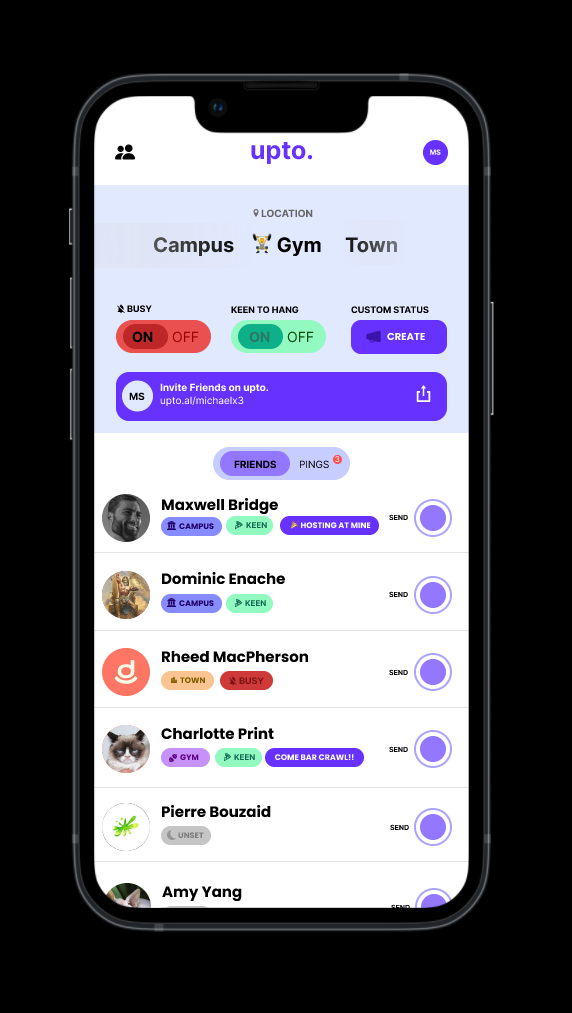
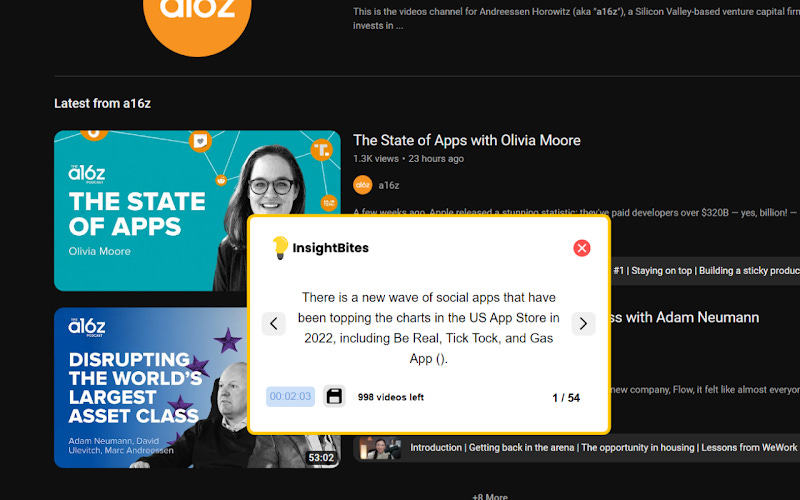
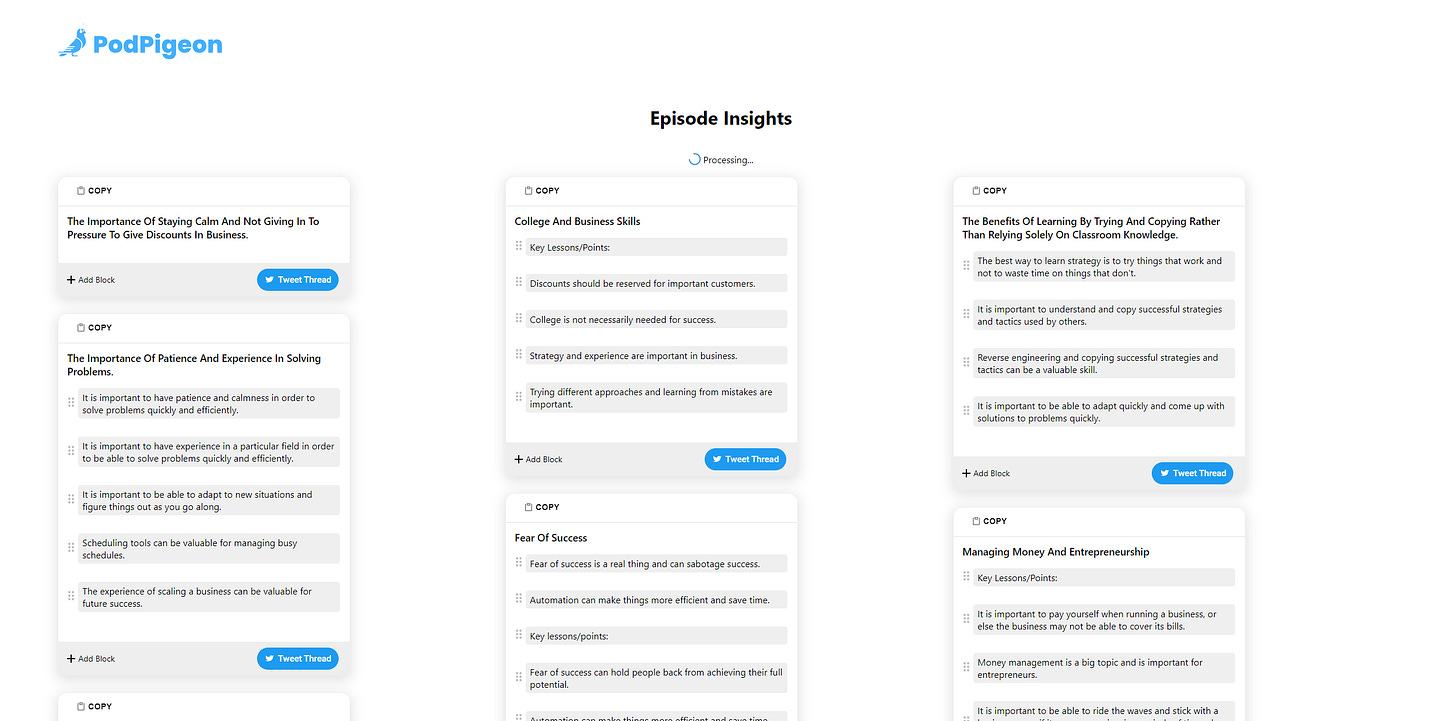
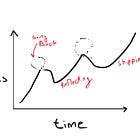
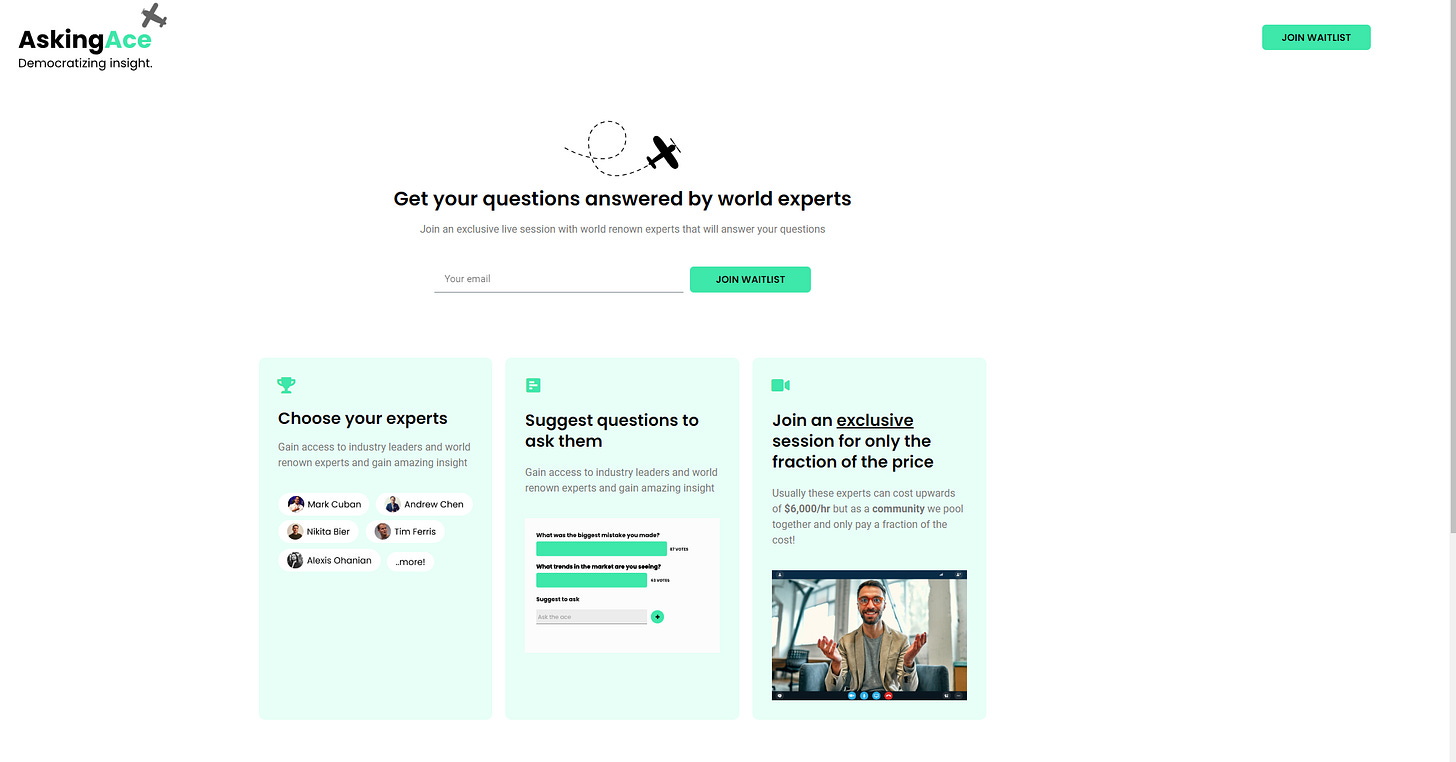
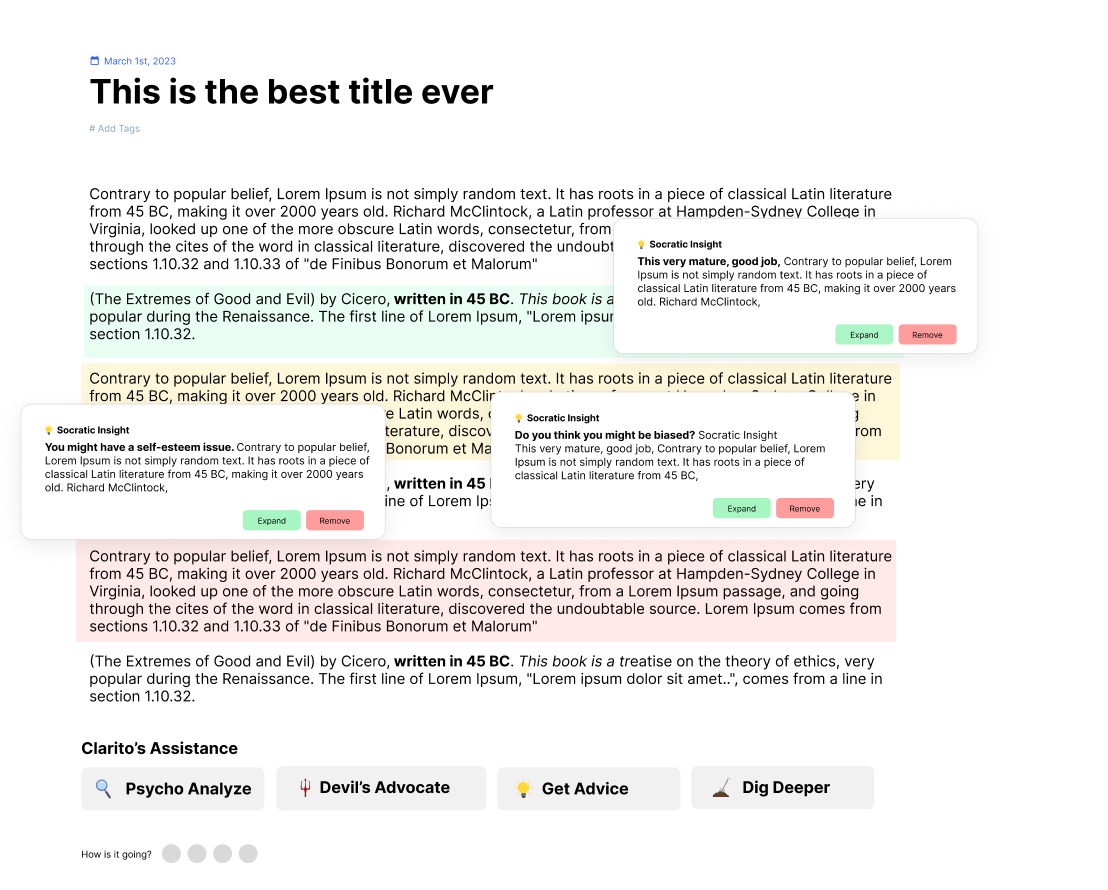
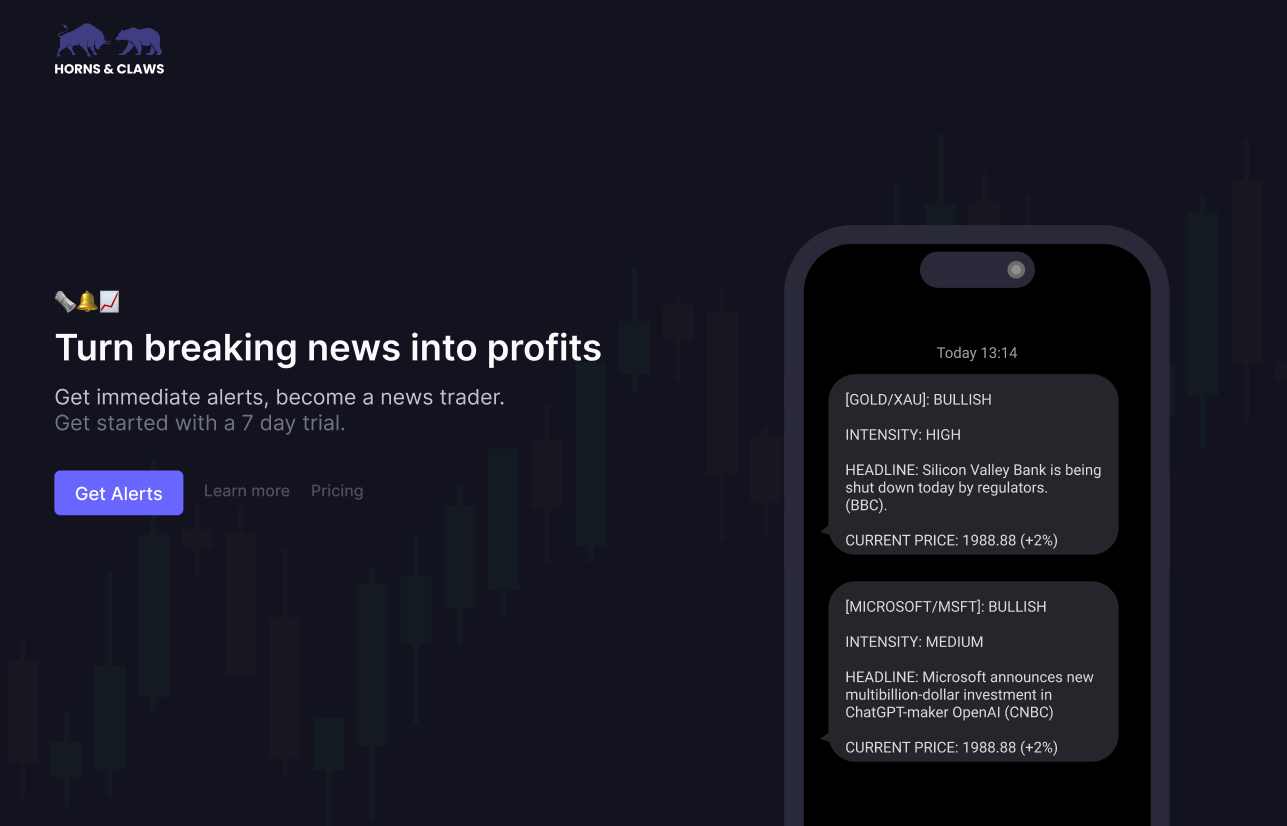
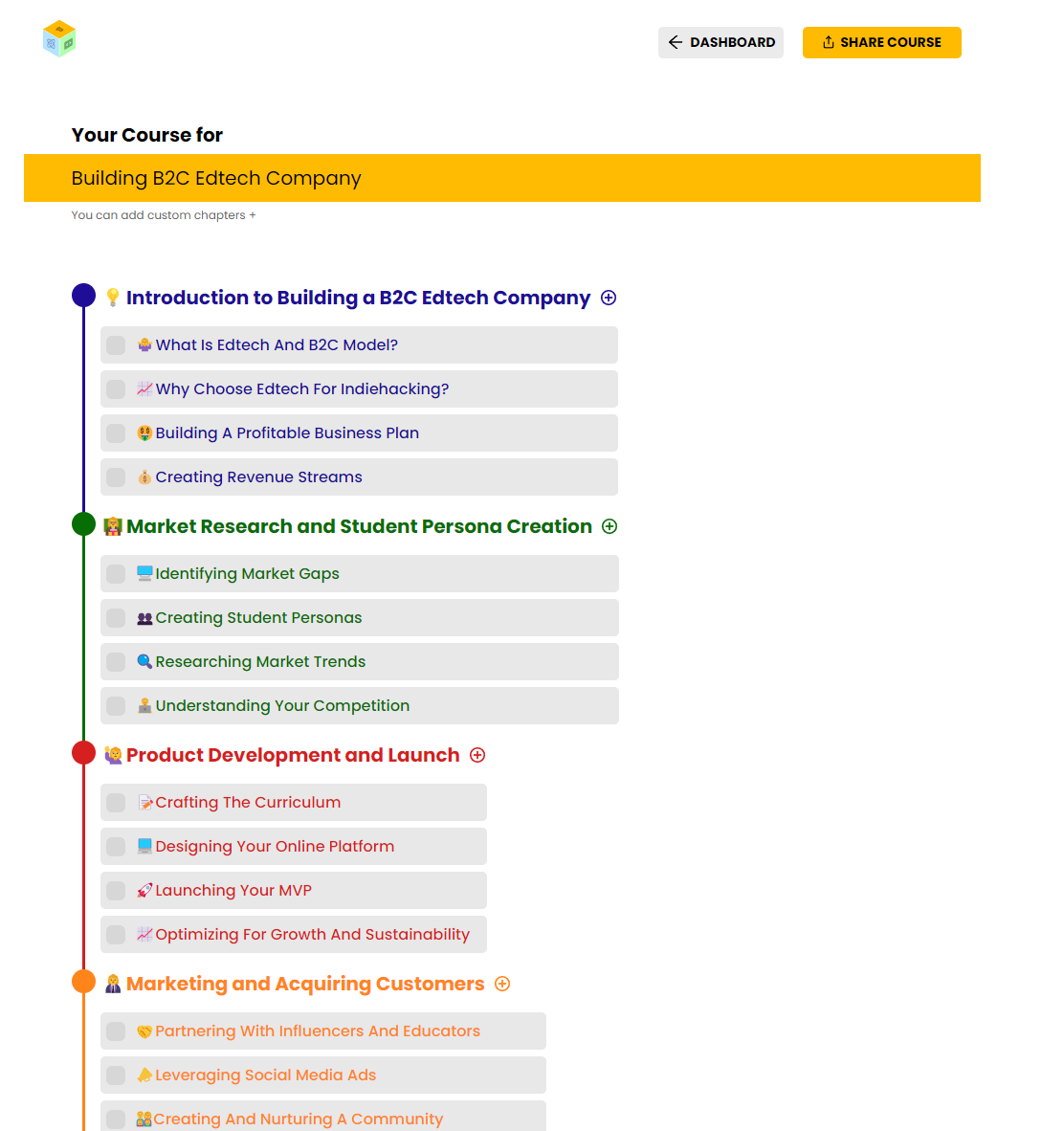
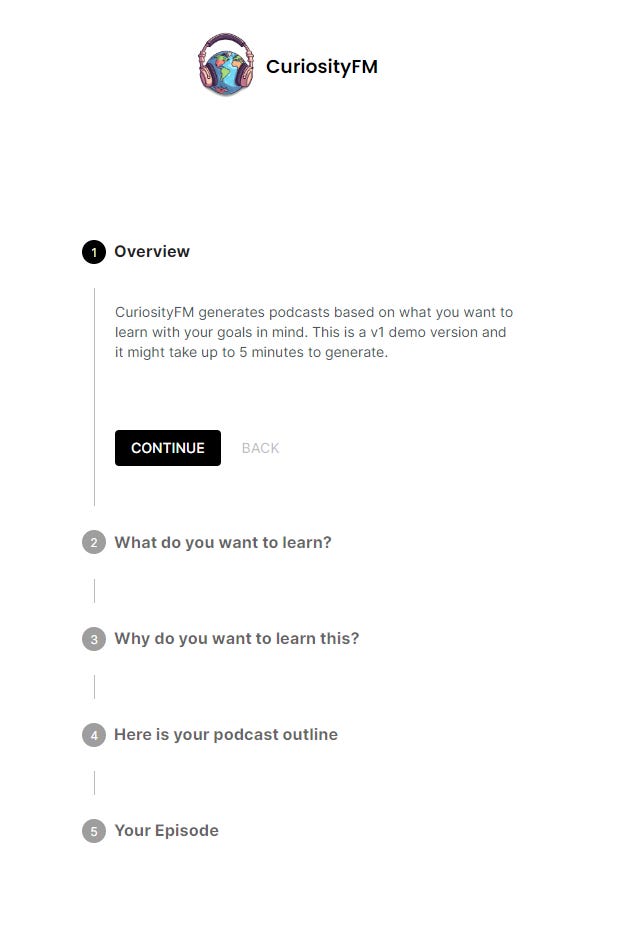
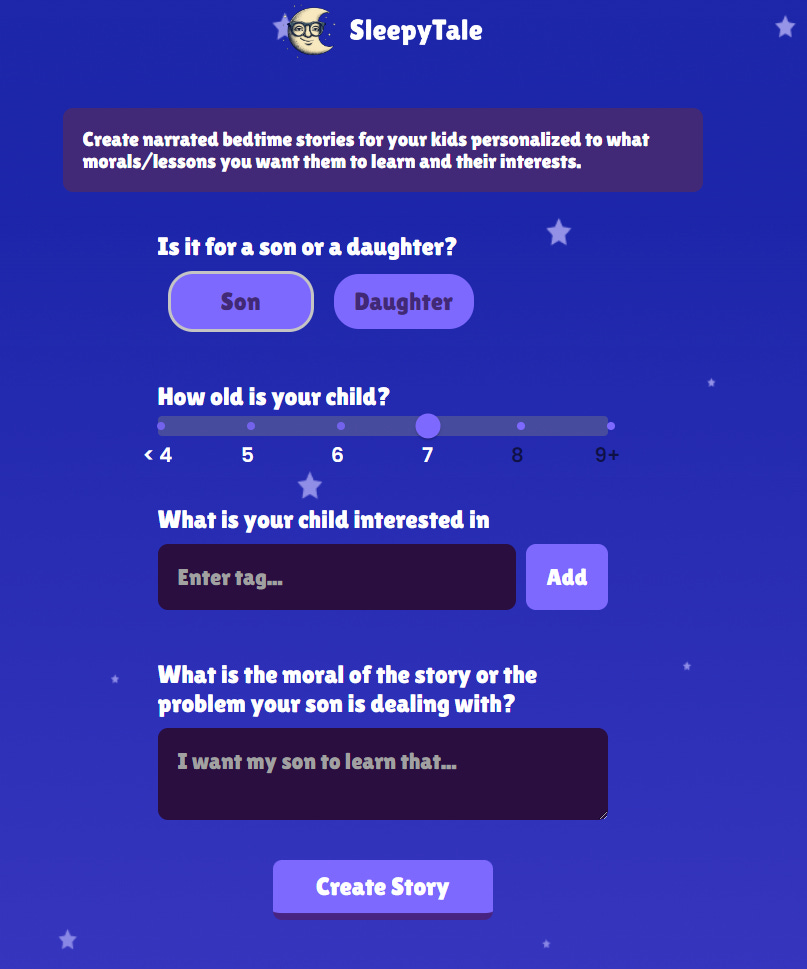
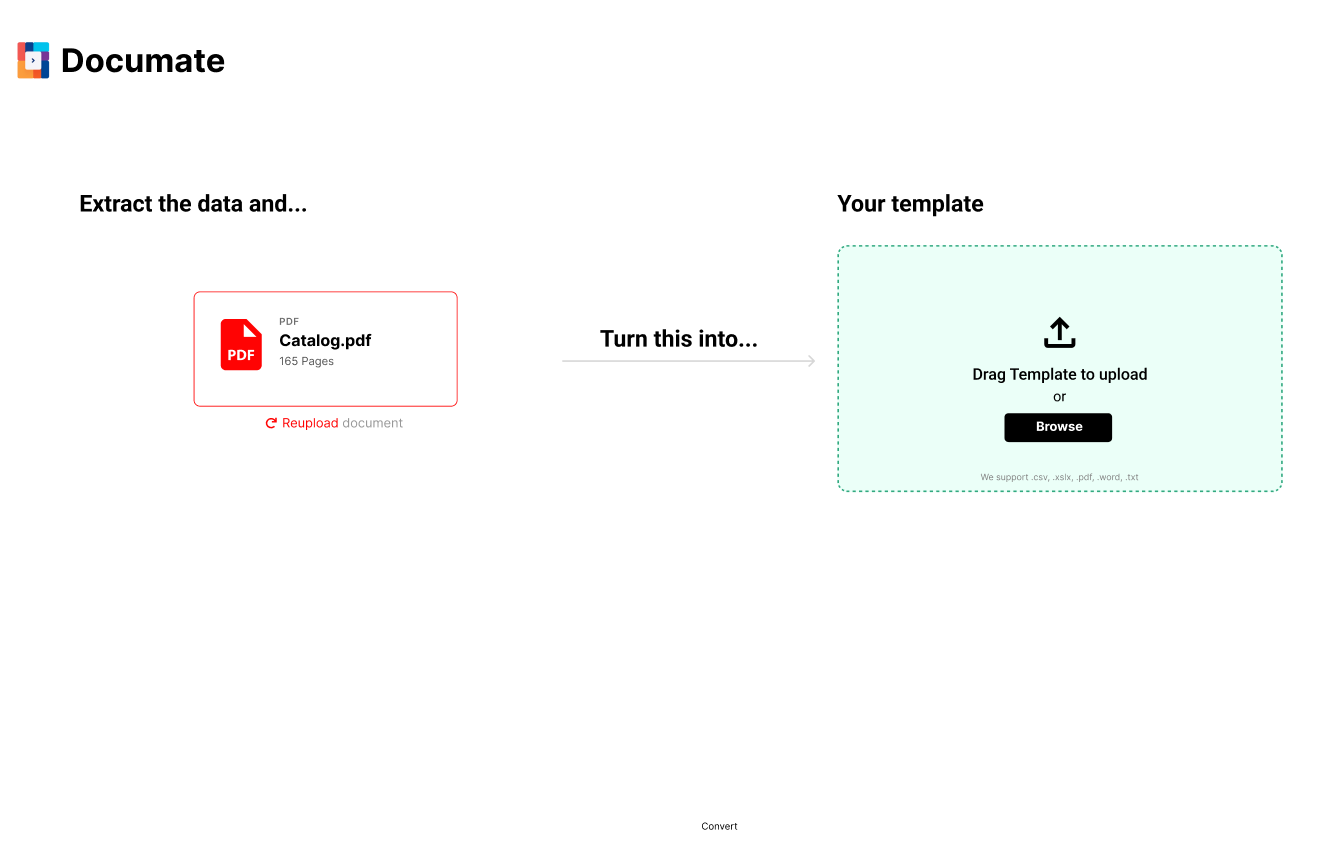
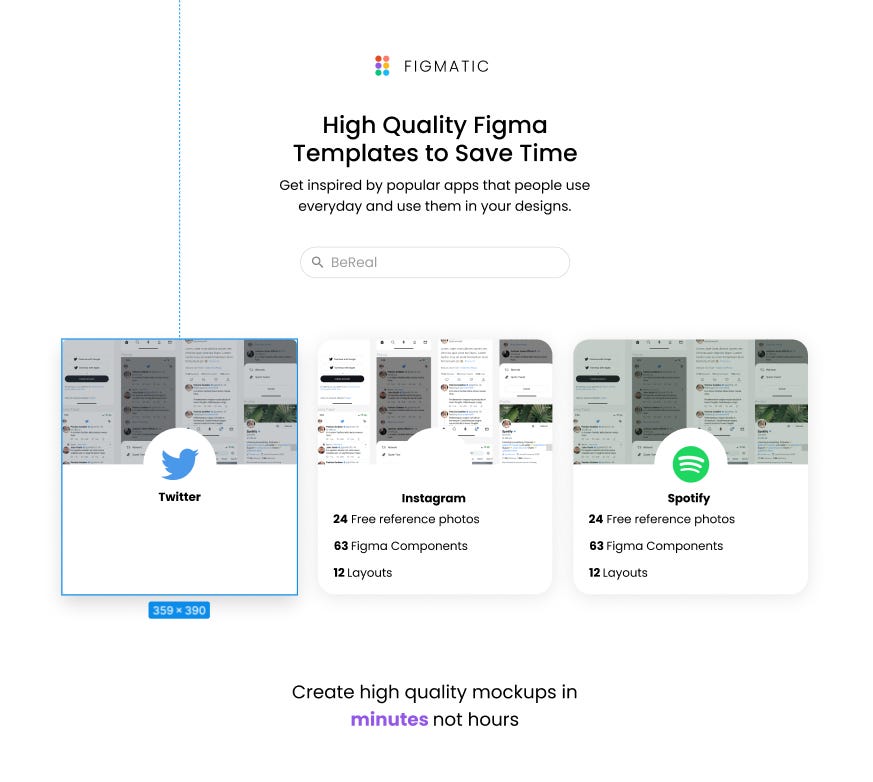
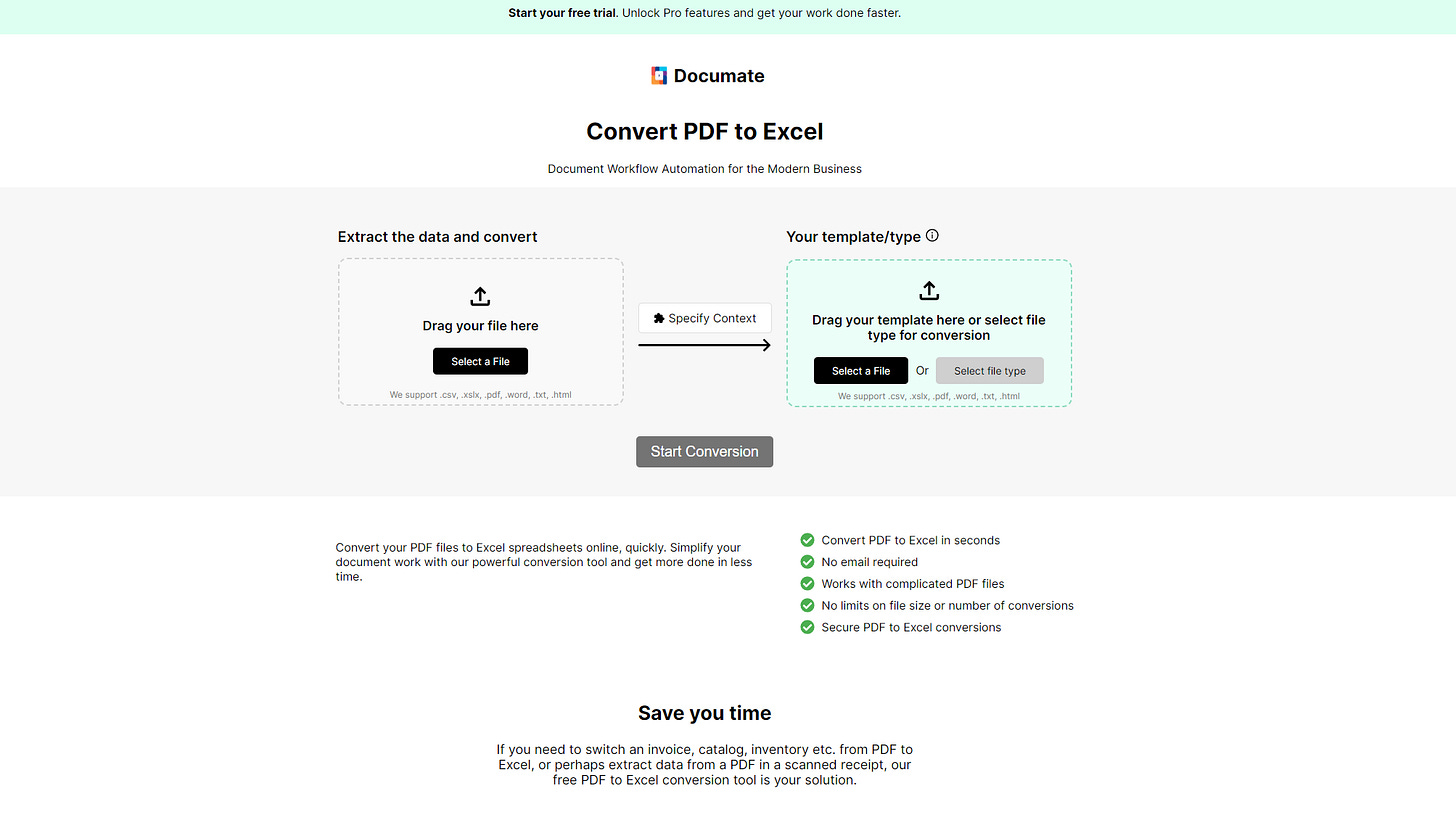
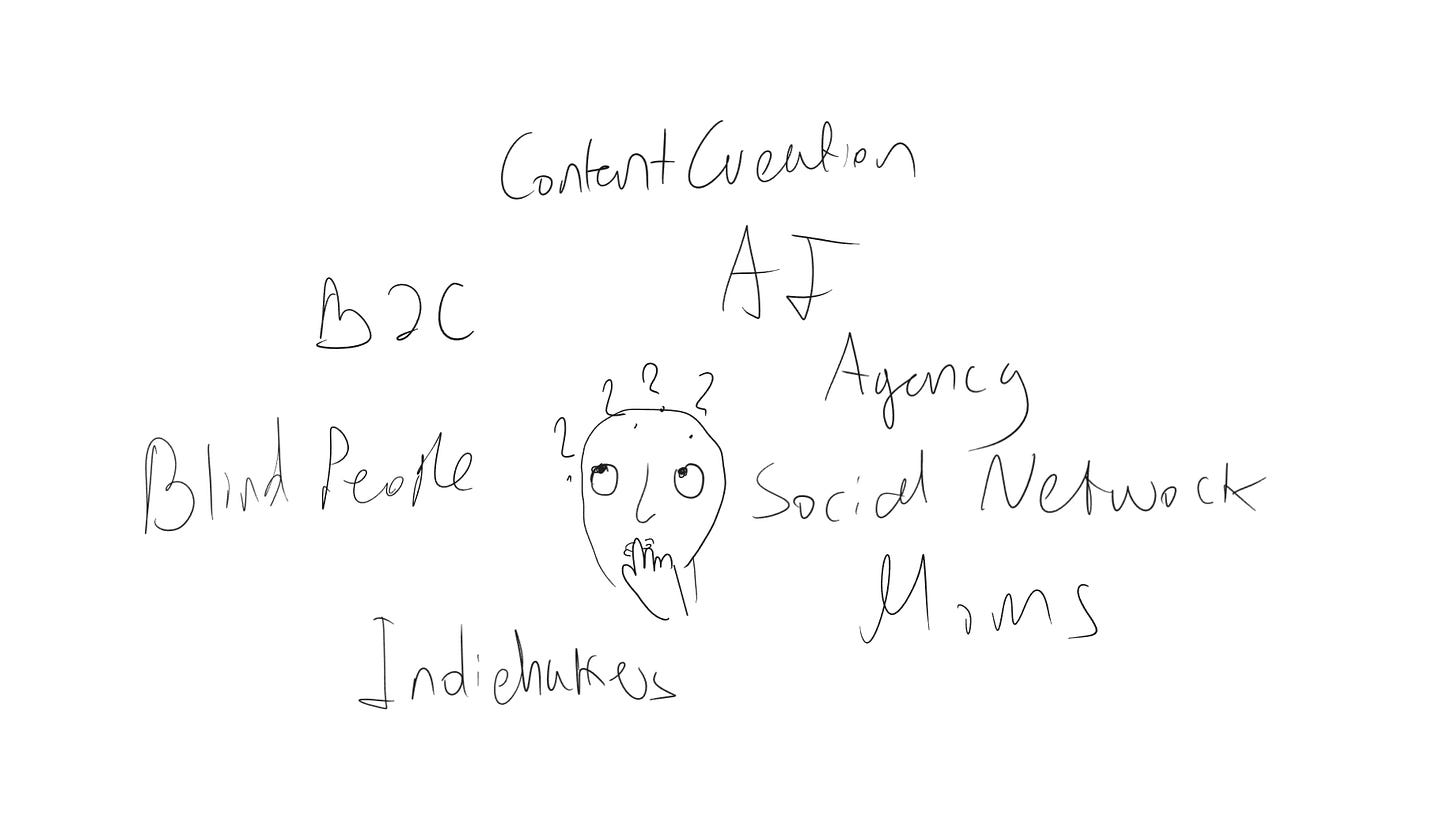
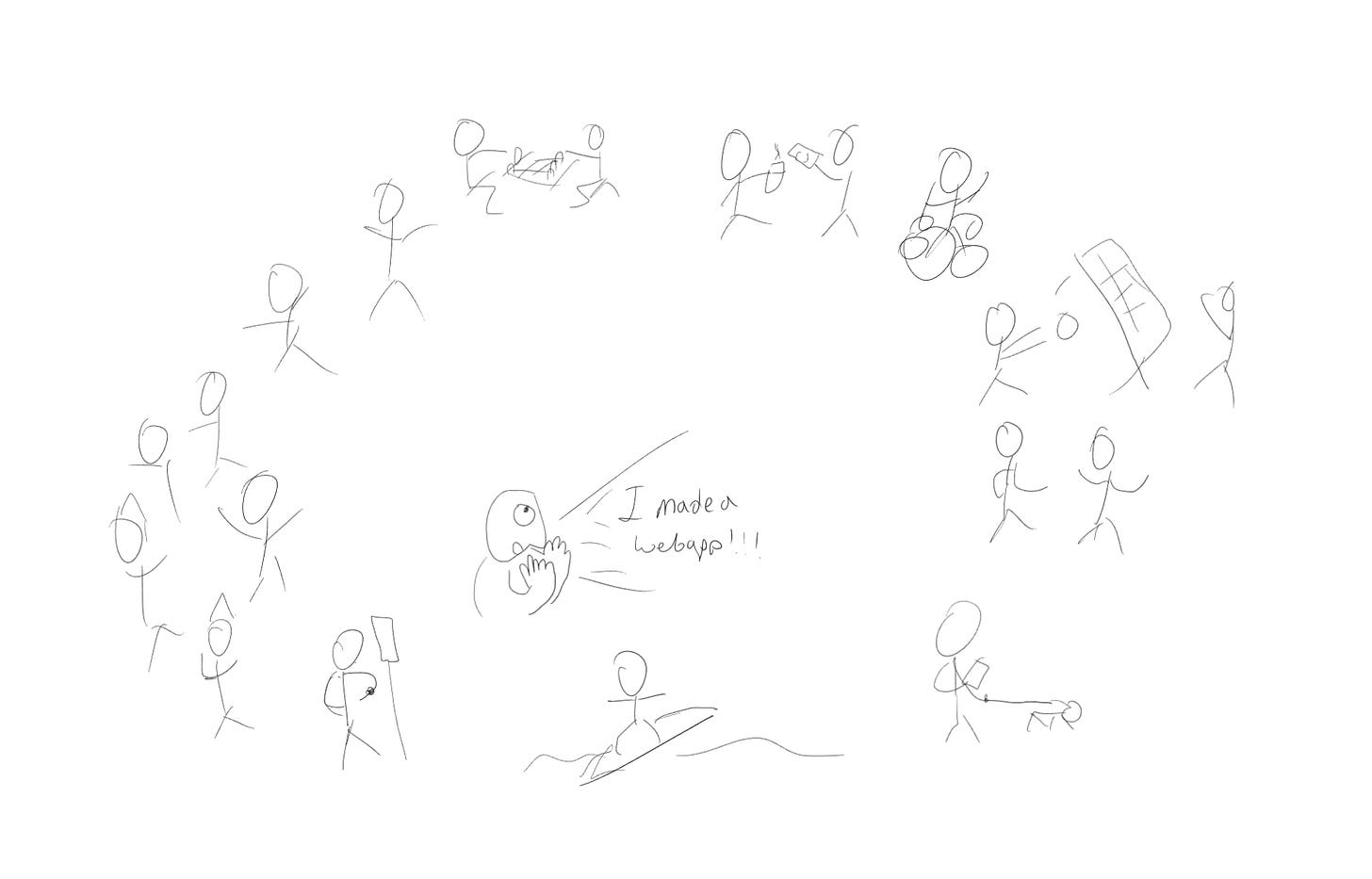
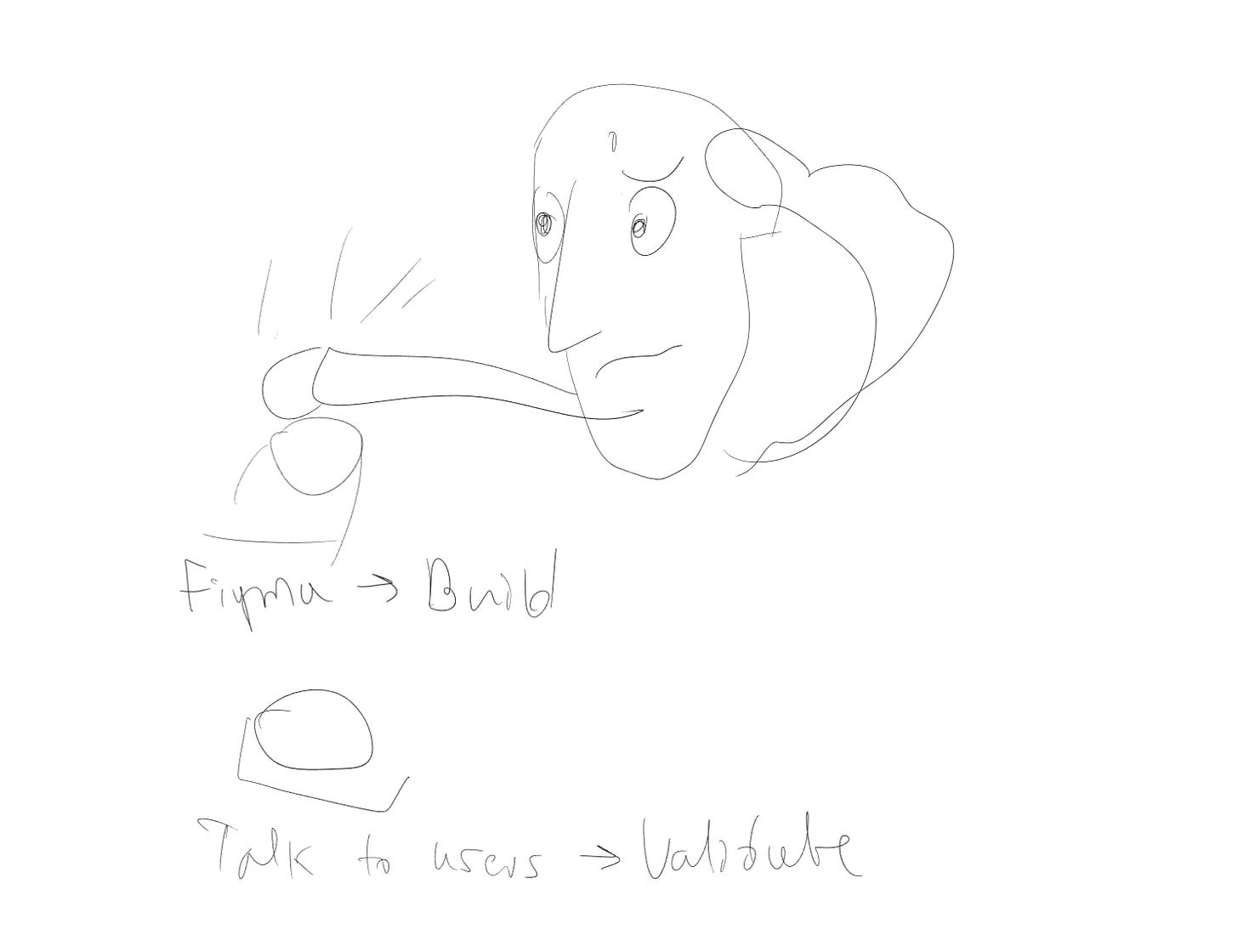
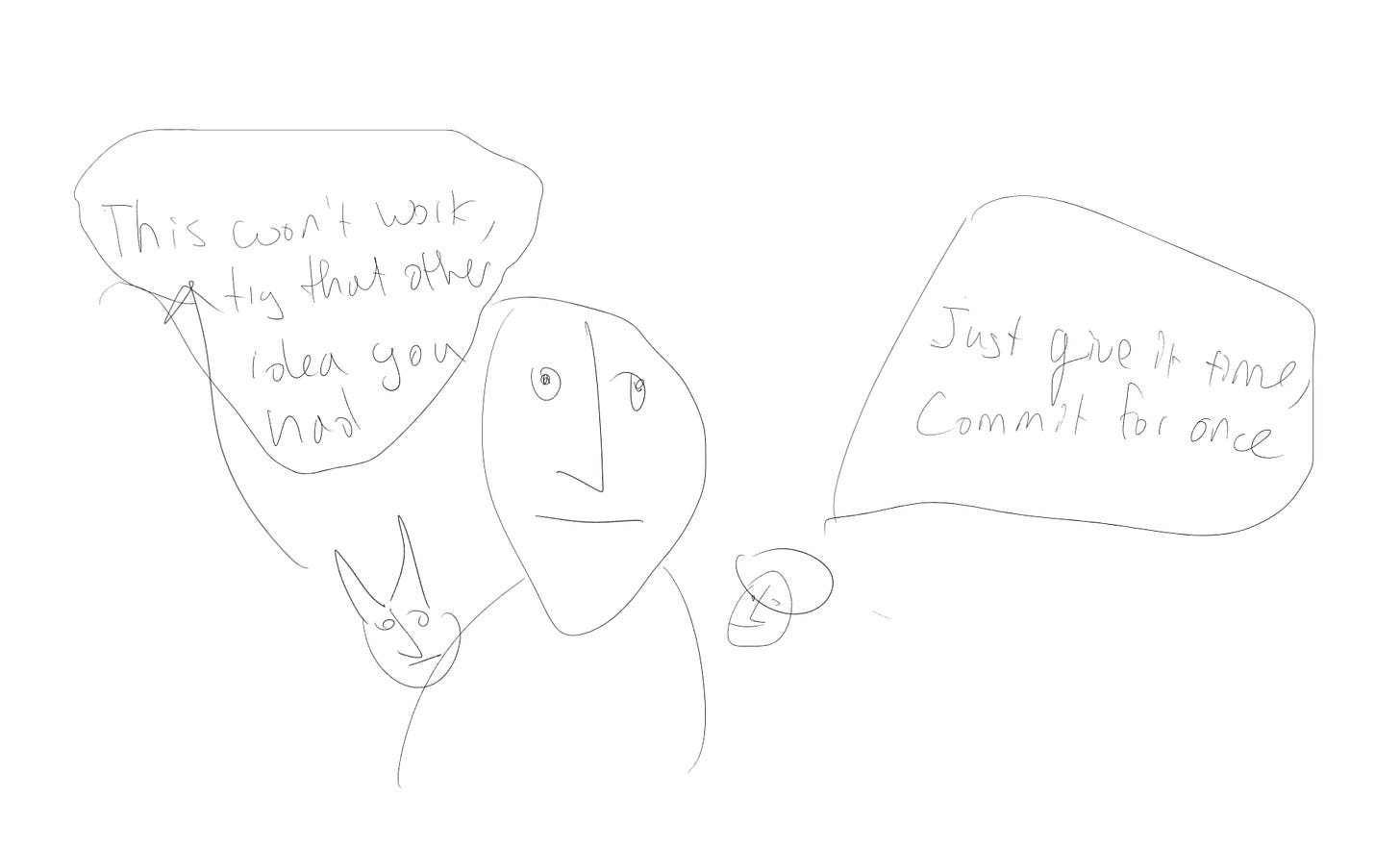
Really enjoyed this. Highly relatable, although I am working in a non-tech field full time and trying to spin stuff up in evenings and weekends. committing is key!
Love this Michael. I enjoyed reading as whenever I saw you this past year, you introduced me to nearly half of the projects mentioned. Glad you took me along for the ride, and let me sit in with you from time to time.